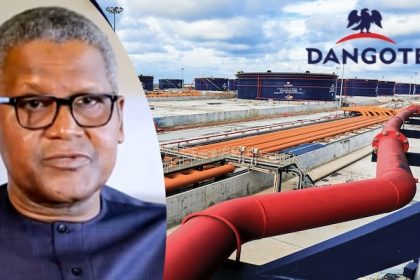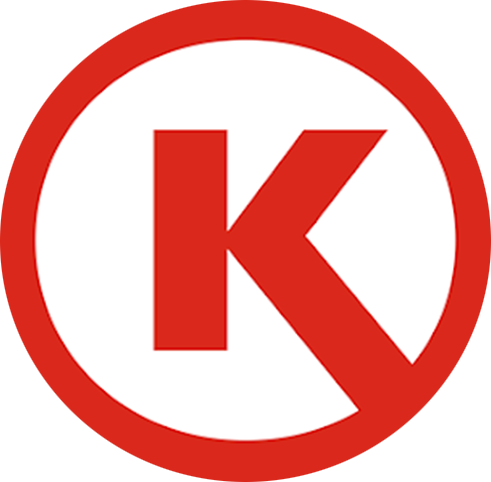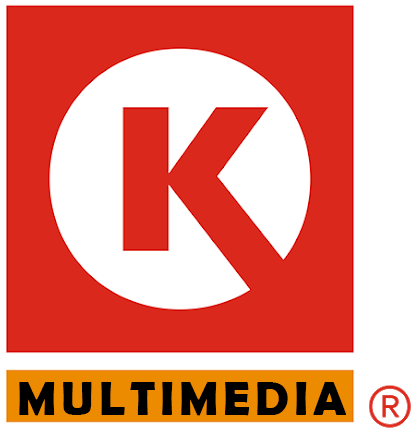
There were hints on Thursday that the three-week negotiations between the Nigerian National Petroleum Company Limited (NNPC) and the Dangote Refinery leadership may be moving forward regarding in-country fuel supply. As part of the agreement between the two companies, the NNPC is now asking to send a permanent monitoring team to the facility.
Additionally, it was discovered that, in accordance with the agreements made with the NNPC, Aliko Dangote, the president of the Dangote Group, has agreed to sell the refined petrol produced by his refinery, which produces 650,000 barrels of oil per day, in Nigerian Naira.
Devakumar Edwin, vice president of oil and gas at Dangote Industries Limited, made this announcement at an X Space event that THISDAY was covering and that was presented by “Nairametrics.”
During the meeting, Edwin talked about the refinery’s progress in producing Premium Motor Spirit (PMS), or petrol. He emphasised that the NNPC had notified the Dangote Group’s management of its plan to permanently station a team of six to ten employees at the $20 billion refinery.
Edwin stated that since the national oil firm would be providing the crude, NNPC informed the refinery management that the team would be in charge of production oversight and would be purchasing the products back in Naira.
In order to secure a regular flow of PMS for the nation, he continued, the request is in line with the NNPC’s goal of closely monitoring the entire process, assuring stable crude supply and effective processing.
“NNPC has notified us of their intention to establish a permanent team of six to ten personnel at our facility. Since they will be supplying the crude, supervising the production, and purchasing the products back in Naira, they have asked us to offer office space.
“This request is in line with the NNPC’s objective to closely oversee the entire process, guaranteeing the efficient supply and processing of crude oil while ensuring a consistent supply of PMS for the nation,” Edwin said.
Edwin gave more details about the refinery’s operations and business agreements while pointing out that the talks with the NNPC focused on a new crude supply model in which the refinery would purchase crude from the government in naira and sell PMS in the same currency as opposed to dollars.
He said that important issues like the price of crude and the Naira currency rate were still being worked out in the continuing negotiations.
“We are still in negotiations with the government to receive Naira worth of crude oil.” Nothing has been decided upon yet, and the talks are still in progress. The pricing of oil, the pricing system, and figuring out the right exchange rate for the Naira are some of the outstanding difficulties, he said.
Edwin clarified, however, that despite the possibility of losing money, Aliko Dangote had accepted the federal government’s request to sell goods from the NNPC to the government in Naira.
Edwin claims that Dangote cited the urgent need for foreign currency and the declining value of the Naira as decisive elements in his choice to move forward with the transaction.
“Dangote stepped in and declared, ‘We will take this, as the nation is in dire need of foreign currency and the Naira’s value is declining daily. I am aware that I will experience a loss because the exchange rate might have gotten worse by the time we sell the item and convert it to dollars.
Edwin also voiced his displeasure with the apparent boycott of Dangote Refinery’s goods by regional marketers, revealing that many Nigerian traders have refused to buy from the facility in favour of continuing to import refined products from overseas, despite the refinery’s efforts to provide reasonably priced petroleum products.
“The whole idea behind building this refinery in Nigeria was to use our own crude, rather than bringing in finished goods and exporting raw materials,” he stated. Nigeria ought to be able to process and utilise the final goods within, then increase output to export the excess.
However, the vice president of Dangote Industries Limited (DIL) said that local merchants were only buying roughly 3% of the refinery’s output, despite its huge production capability.
He said that because local traders are refusing to purchase at the refinery’s reduced pricing, 97% of the refinery’s output, including diesel and jet fuel, is being exported.
“I’m forced to export 95 to 97 percent of what I’m selling to small traders who are willing to buy,” he said, implying that some marketers would rather import for unknown reasons.
In an odd turn of events, Edwin said that oil marketers wrote President Bola Tinubu to express their displeasure with the refinery’s pricing policies, particularly the way they decreased the price at which Nigerians were purchasing diesel.
Concerned about the merchants’ ongoing resistance, he clarified, “They wrote to His Excellency, the president, claiming that we are disturbing the market by dropping our prices.”
He claimed that, depending on the availability of crude oil, the refinery could generate up to 54 million litres of refined petroleum products daily. However, he bemoaned the irregularity of local crude supplies, which forced the refinery to rely on imported crude from nations like the US and Brazil.
Edwin went on to say that the issue was made worse by international oil companies (IOCs), who emphasise exporting crude oil at rates higher than the going rate to foreign markets.
He revealed that Nigeria’s petroleum demands could be satisfied by exporting the remaining 44% of the refinery’s output.
“We have made significant investments in training and production capability with refinery capacity. As I mentioned before, 44% of the output from refineries can satisfy all of the nation’s needs.
Thus, whether it is jet fuel, diesel, or PMS, the remaining 56% of the refinery’s output must be exported because the remaining 44% will satisfy all of the nation’s needs.
Therefore, by substituting imports, we will not only save a significant amount of foreign currency but also produce a significant amount through exports. You have now discussed the pricing mechanism’s transparency. As previously said, NNPC is providing us with the crude and assigning personnel to oversee all production procedures, stock releases, and other related activities.
“And they are going to agree on the price at which they will sell the crude in Naira and then they are going to collect all the products. So they are going to work through to see how the prices will be. So it is not something where we are trying to exploit somebody,” he maintained.
According to him, while 2,900 tankers can load every day, he explained that the refinery was currently not even loading 29 tankers per day.
“So, it is very strange that after putting the refinery to supply the products locally, every diesel I am producing, I have to export. Every jet fuel I am producing, I have to export because they do not want to buy from us. So, we are in a very strange situation,” Edwin stressed.
With investment of about $3 billion in fertiliser and $20 billion in the refinery, he explained that unless the business makes some money, it will not be able to invest in upstream.
He disclosed that he has been an employee of Aliko Dangote for as far back as 33 years, noting that all the money that Africa’s richest man makes goes into further investment to ensure the employment of Nigeria’s teeming population.
“He has not built any other palace or any other house. He is living in the same 35-year-old house. The only thing he can sit is an aluminium sheet shed. Nothing else he has built. And 33 years ago when I joined, he had a house in Atlanta. He was a neighbour to Ted Turner, the then owner of CNN.
“He made the sale. He lived in a London home. He sold it. He sold all those residences and placed the proceeds into the sugar refinery between 1997 and 1999, when we were working on the project.
“He used every penny we earned from our textiles and salt to refine sugar, grind flour, make noodles, and pasta. After that, dad began investing all of the money we had made in cement.With the money he acquired from cement, he has now invested in refineries, oil and gas, and fertiliser. Our companies are all listed on stock exchanges. Therefore, the company’s profit margin and the dividend amount that he receives are both disclosed. so that all of the money is visible.

